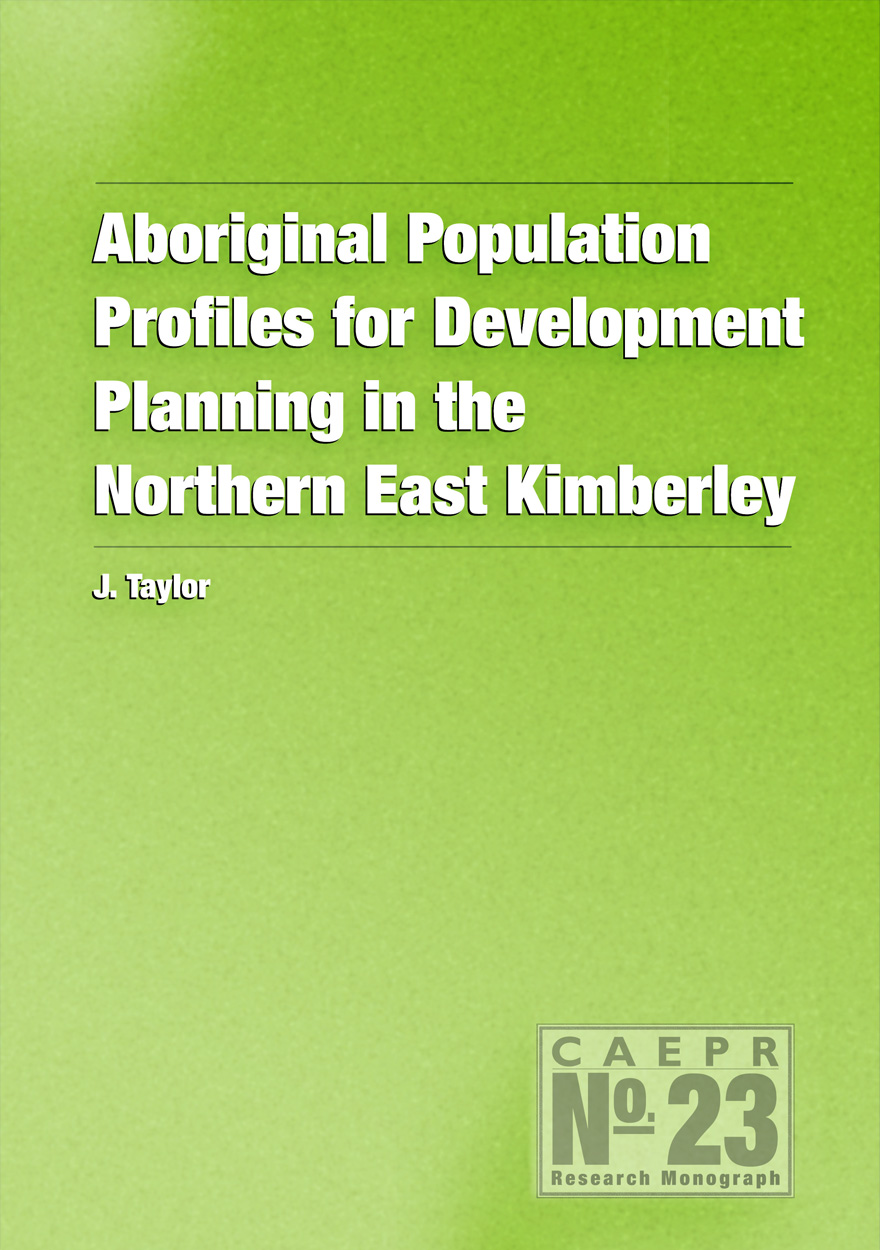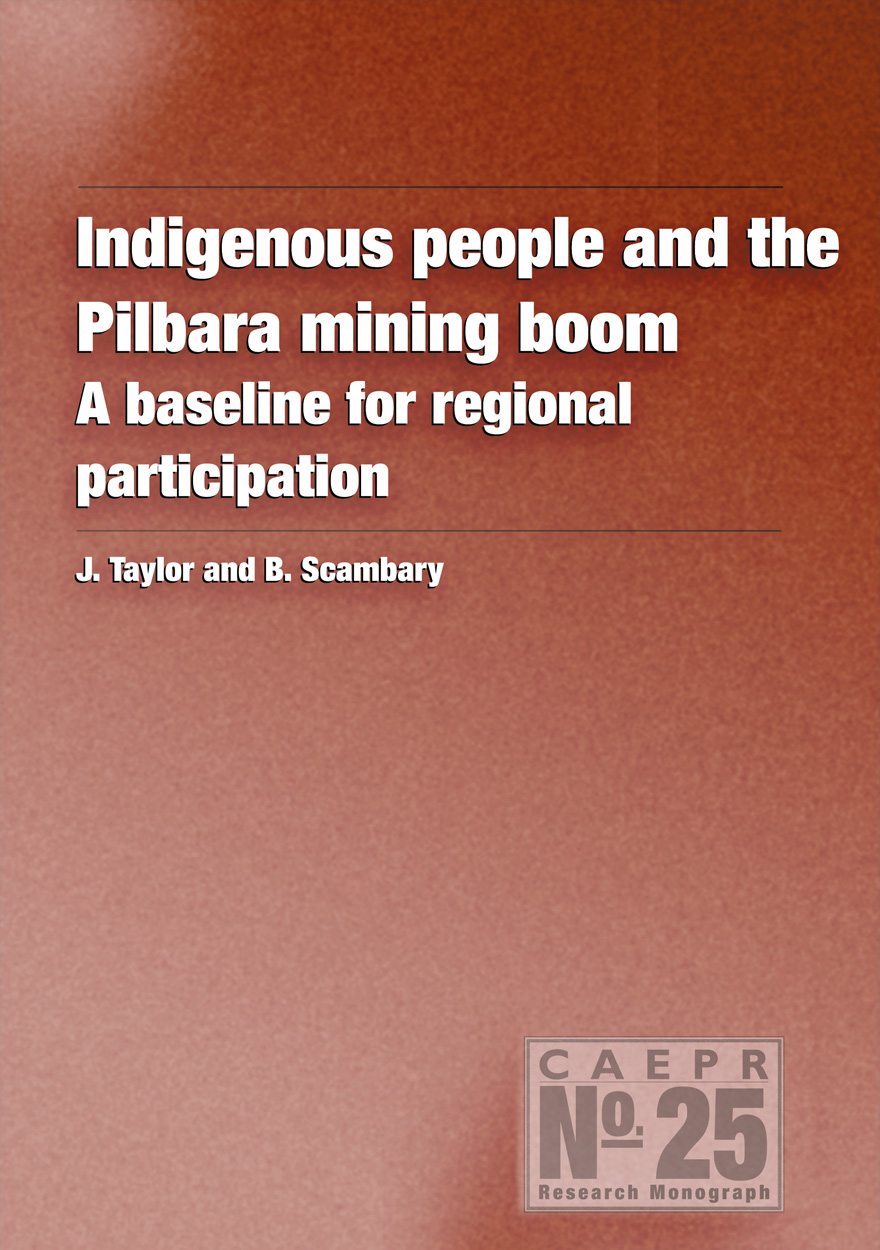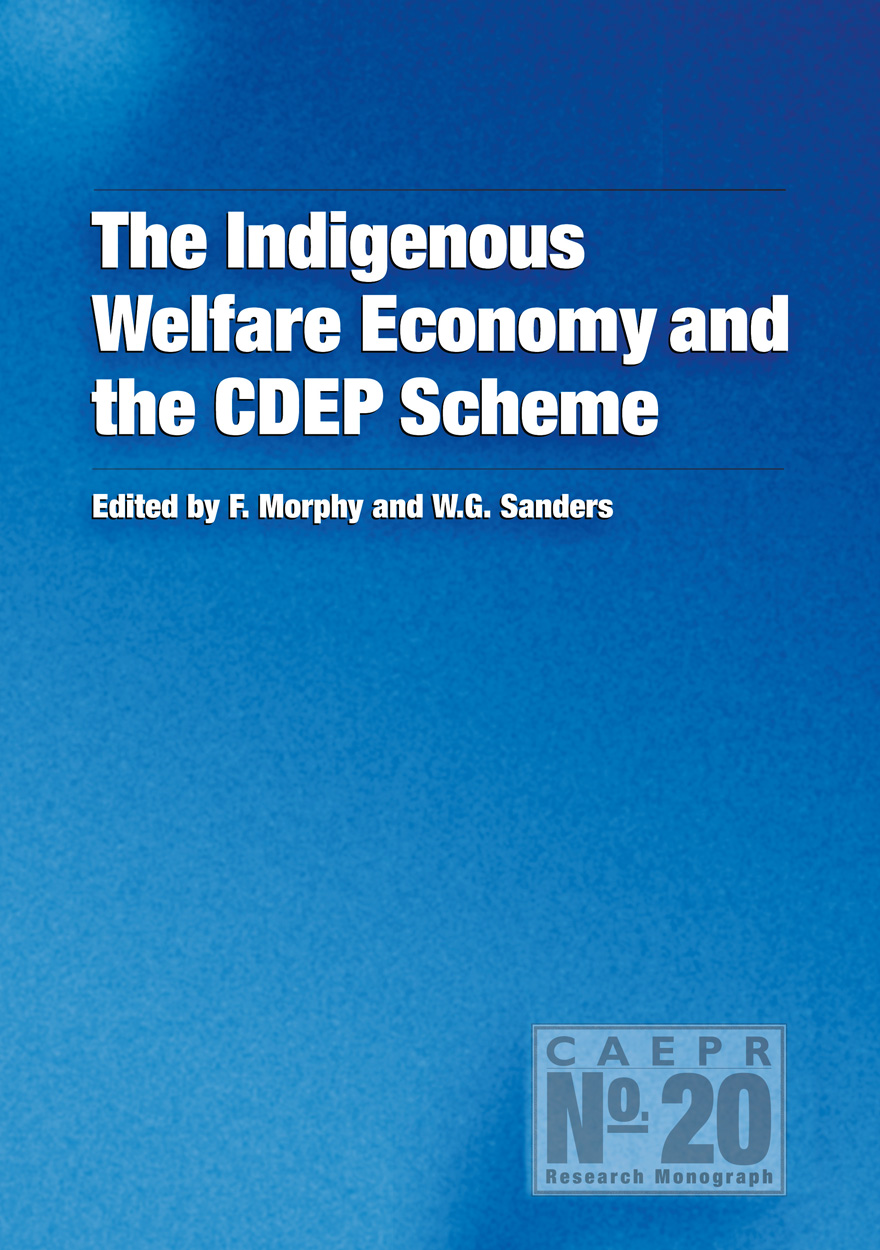Search titles
Displaying results 1071 to 1080 of 1137.

Rebellion at Coranderrk »
Authored by: Diane Barwick
Publication date: August 2024
More than a century ago an Aboriginal community in Victoria campaigned for recognition of their right to occupy and control the small acreage they had farmed for 25 years. Others wanted to develop this tract. Government spokesmen denied that the occupants had inherited any rights to this land and declared that, anyway, they were not really Aborigines. This book is about the rebellion at Coranderrk Aboriginal Station between 1874 and 1886. It describes how Coranderrk families fought to keep their land. To explain why they fought I must begin with the years before, to show what this ‘miserable spadeful of ground’ meant to them, and how they came to be there. Finally, I sketch what ultimately happened.
First published in 1998, 12 years after the death of its author Diane Barwick, Rebellion at Coranderrk was an attempt to rectify some of the injustices of the past two-hundred-plus years in Australia, and to prevent similar occurrences in the future.
It remains acutely relevant.
This book includes the names and images of people who are now deceased.
‘All Australians have good reason to be grateful to Diane Barwick.’
— H. C. Coombs
‘The painstaking research, the perceptive judgements of people and events, and the brilliant prose combine to produce a magnificent account of the Kulin and their European “administrators”. The book is simply packed with historical reinterpretation and vivid reconstructions of families and individuals.’
— C. T. Stannage
‘The author’s research found that Coranderrk is an excellent example of … an Aboriginal (farming) success story. It is very relevant to modern land-rights protests throughout Australia.’
— Canberra Times

Aboriginal Population Profiles for Development Planning in the Northern East Kimberley »
Authored by: John Taylor
Publication date: March 2004
John Taylor is a Senior Fellow at the Centre for Aboriginal Economic Policy Research, The Australian National University, Canberra.
The Northern East Kimberley region of Western Australia is poised at a development crossroads with decisions pending on the extension or closure of Argyle Diamond Mine, and the ever-present prospect of agricultural expansion based on Ord Stage II. This region also has a major economic development problem—half of its adult population (almost all Aboriginal) is highly dependent on welfare, mostly outside the mainstream labour market, and ill-equipped to engage it.
Aboriginal people are major stakeholders in the region as its customary owners and most permanent residents. Whatever decisions are made about future development, it is essential that they bring about improvements in Aboriginal participation, not least because of the high opportunity cost to Aboriginal people and to government of failing to do so.
This study profiles social and economic conditions in the region, focusing on the Aboriginal population. It examines demography, the labour market, income, education and training, housing and infrastructure, health status, and regional involvement in the criminal justice system. It provides a quantum to discussions of need, aspirations and regional development capacities, as well as a benchmark against which the impact of developmental actions may be assessed.

Agency, Contingency and Census Process »
Observations of the 2006 Indigenous Enumeration Strategy in remote Aboriginal Australia
Edited by: Frances Morphy
Publication date: December 2007
The Indigenous Enumeration Strategy (IES) of the Australian National Census of Population and Housing has evolved over the years in response to the perceived ‘difference’ of the Aboriginal and Torres Strait Islander populations. Its defining characteristics are the use of locally recruited, mostly Indigenous collector interviewers, and the administration of a modified collection instrument in discrete Indigenous communities, mostly in remote Australia.
The research reported here is unique. The authors, with the assistance of the Australian Bureau of Statistics, were able to follow the workings of the IES in the 2006 Census from the design of the collection instrument to the training of temporary census field staff at the Northern Territory’s Census Management Unit in Darwin, to the enumeration in four remote locations, through to the processing stage at the Data Processing Centre in Melbourne. This allowed the tracking of data from collection to processing, and an assessment of the effects of information flows on the quality of the data, both as input and output.
This study of the enumeration involved four very different locations: a group of small outstation communities (Arnhem Land), a large Aboriginal township (Wadeye), an ‘open’ town with a majority Aboriginal population (Fitzroy Crossing), and the minority Aboriginal population of a major regional centre (Alice Springs). A comparison between these contexts reveals differences that reflect the diversity of remote Aboriginal Australia, but also commonalities that exert a powerful influence on the effectiveness of the IES, in particular very high levels of short-term mobility. The selection of sites also allowed a comparison between the enumeration process in the Northern Territory, where a time-extended rolling count was explicitly planned for, and Western Australia, where a modified form of the standard count had been envisaged.
The findings suggest that the IES has reached a point in its development where the injection of ever-increasing resources into essentially the same generic set and structure of activities may be producing diminishing returns. There is a need for a new kind of engagement between the Australian Bureau of Statistics and local government and Indigenous community-sector organisations in remote Australia. The agency and local knowledge of Indigenous people could be harnessed more effectively through an ongoing relationship with such organisations, to better address the complex contingencies confronting the census process in remote Indigenous Australia.

Assessing the Evidence on Indigenous Socioeconomic Outcomes »
A focus on the 2002 NATSISS
Edited by: Boyd Hunter
Publication date: June 2006
This monograph presents the peer-reviewed proceedings of the CAEPR conference on Indigenous Socioeconomic Outcomes: Assessing Recent Evidence, held at The Australian National University in August 2005. It presents the latest evidence on Indigenous economic and social status, and family and community life, and discusses its implications for government policy.
The main focus of this volume is on analysing the 2002 National Aboriginal and Torres Strait Islander Social Survey (NATSISS) outputs and issues about how to interpret the data. It also offers some assessment of changes in Indigenous social conditions over time and examines how Indigenous people fared vis-à-vis other Australians in other statistical collections. The discussion of the broad Indigenous policy context by three prominent Indigenous Australians—Larissa Berhendt, Tom Calma, and Geoff Scott—explores different perspectives.

Contested Governance »
Culture, power and institutions in Indigenous Australia
Edited by: Janet Hunt, Diane Smith, Stephanie Garling, Will Sanders
Publication date: October 2008
It is gradually being recognised by both Indigenous and non-Indigenous Australians that getting contemporary Indigenous governance right is fundamental to improving Indigenous well-being and generating sustained socioeconomic development. This collection of papers examines the dilemmas and challenges involved in the Indigenous struggle for the development and recognition of systems of governance that they recognise as both legitimate and effective. The authors highlight the nature of the contestation and negotiation between Australian governments, their agents, and Indigenous groups over the appropriateness of different governance processes, values and practices, and over the application of related policy, institutional and funding frameworks within Indigenous affairs.
The long-term, comparative study reported in this monograph has been national in coverage, and community and regional in focus. It has pulled together a multidisciplinary team to work with partner communities and organisations to investigate Indigenous governance arrangements–the processes, structures, scales, institutions, leadership, powers, capacities, and cultural foundations–across rural, remote and urban settings.
This ethnographic case study research demonstrates that Indigenous and non-Indigenous governance systems are intercultural in respect to issues of power, authority, institutions and relationships. It documents the intended and unintended consequences–beneficial and negative–arising for both Indigenous and non-Indigenous Australians from the realities of contested governance. The findings suggest that the facilitation of effective, legitimate governance should be a policy, funding and institutional imperative for all Australian governments.
This research was conducted under an Australian Research Council Linkage Project, with Reconciliation Australia as Industry Partner.

Demographic and Socioeconomic Outcomes Across the Indigenous Australian Lifecourse »
Evidence from the 2006 Census
Authored by: Nicholas Biddle, Mandy Yap
Publication date: December 2010
Across almost all standard indicators, the Indigenous population of Australia has worse outcomes than the non-Indigenous population. Despite the abundance of statistics and a plethora of government reports on Indigenous outcomes, there is very little information on how Indigenous disadvantage accumulates or is mitigated through time at the individual level. The research that is available highlights two key findings. Firstly, that Indigenous disadvantage starts from a very early age and widens over time. Secondly, that the timing of key life events including education attendance, marriage, childbirth and retirement occur on average at different ages for the Indigenous compared to the non-Indigenous population. To target policy interventions that will contribute to meeting the Council of Australian Governments’ (COAG) Closing the Gap targets, it is important to understand and acknowledge the differences between the Indigenous and non-Indigenous lifecourse in Australia, as well as the factors that lead to variation within the Indigenous population.

Health Expenditure, Income and Health Status Among Indigenous and Other Australians »
Publication date: August 2004
Using data from the 1995 National Health Survey (NHS) this study asks the question—what is the relationship between income, health expenditure and health status for the Indigenous and non-Indigenous populations in Australia? Income is generally seen as an indicator of ability to address the need for health expenditure, and as a factor in influencing health status. The expectation, therefore, is that income and health status are positively related.
The analysis measures differences in health expenditure and reported health status between the Indigenous and non-Indigenous populations, holding income level constant. No association is found between income and Indigenous health status. A number of explanations are canvassed. The finding may simply reflect poor data quality, both in terms of income and self-assessed health status. An alternative hypothesis, with long-term implications, is that adult mortality reflects foetal and childhood health, regardless of current income status.

Indigenous Australians and the National Disability Insurance Scheme »
Authored by: Nicholas Biddle, Fadwa Al-Yaman, Michelle Gourley, Matthew Gray, J. Rob Bray, Brendan Brady, Le Anh Pham, Emma Williams, Maxine Montaigne
Publication date: October 2014
The National Disability Insurance Scheme (NDIS) is one of the major policy innovations of the early 21st century in Australia, representing a new way of delivering services to people with a disability and those who care for them. It has the potential to transform the lives of hundreds of thousands of people, giving them greater certainty and control over their lives. There is a higher incidence of disability in the Aboriginal and Torres Strait Islander population than in the Australian population more generally, so the NDIS is of particular relevance to Indigenous Australians. However, Indigenous Australians with a disability have a very distinct age, geographic and health profile, which differs from that of the equivalent non-Indigenous population. Furthermore, the conceptualisation of disability and care in many Indigenous communities, particularly in remote areas, may differ markedly in comparison to more settled parts of the country, and there is the added complexity of a unique history of interaction with government. In considering these issues in detail, this Research Monograph provides a resource for policy makers, researchers and service providers who are working in this important policy area. Its major conclusion is that the NDIS, if it is to be an effective policy for Indigenous Australians, needs to take into account their very particular needs and aspirations.

Indigenous People and the Pilbara Mining Boom »
A baseline for regional participation
Authored by: John Taylor, B. Scambary
Publication date: January 2006
The largest escalation of mining activity in Australian history is currently underway in the Pilbara region of Western Australia. Pilbara-based transnational resource companies recognise that major social and economic impacts on Indigenous communities in the region are to be expected and that sound relations with these communities and the pursuit of sustainable regional economies involving greater Indigenous participation provide the necessary foundations for a social licence to operate.
This study examines the dynamics of demand for Indigenous labour in the region, and the capacity of local supply to respond. A special feature of this study is the inclusion of qualitative data reporting the views of local Indigenous people on the social and economic predicaments that face them.
The basic message conveyed is that little has been achieved over the past four decades in terms of enhancing Indigenous socioeconomic status in the Pilbara. On the basis of planned economic development and corporate interest in pursuing Indigenous engagement, progress is now possible but major efforts are required from all interested stakeholders (Indigenous organisations, miners and governments) in order to ensure that this occurs.

The Indigenous Welfare Economy and the CDEP Scheme »
Edited by: Frances Morphy, Will Sanders
Publication date: May 2004
In recent debates about the Indigenous welfare economy, the Community Development Employment Projects (CDEP) scheme has not been given the attention it deserves. It represents a major adaptation of the Australian welfare system to the particular social and economic circumstances of Indigenous people.
Part I of this volume contains overview papers which place the CDEP program in its wider cultural, sociopolitical, and economic contexts. The contributions in Part II address policy and policy-related issues which impact directly, or indirectly, on the structure and function of the CDEP scheme as a whole and of individual CDEP projects. Part III presents research based case-studies of particular CDEP projects in their regional contexts, drawn from the Northern Territory, South Australia, and Victoria. Part IV consists of short case studies, from the perspective of the participants themselves, of a number of CDEP organisations. These case studies provide an important perspective, taking up and providing a grass-roots view of many of the broader policy themes and concerns that are discussed elsewhere in the monograph.
The crucial issue, addressed by many of the contributions, is how Indigenous self determination and the rights agenda, which argues for the unique and inherent rights of Indigenous Australians, will sit with (or in opposition to) the ‘mutual obligation’ of the Howard government’s welfare reform. The volume thus represents a contribution to an ongoing and important debate in current Australian social policy.



